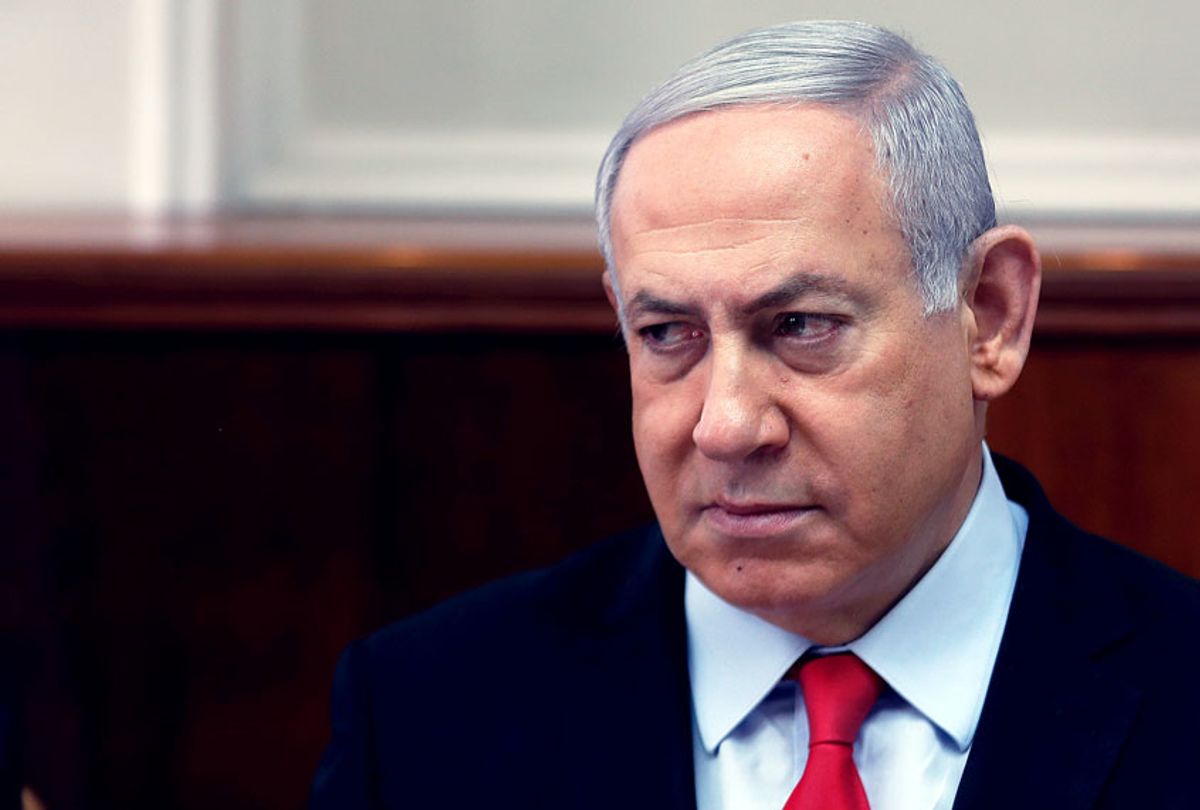After nearly three years of investigations and months of waiting for the attorney general's final decision, Israeli Prime Minister Benjamin Netanyahu has been indicted on charges of bribery, fraud and breach of trust.
The news, announced by Israel's Attorney General Avichai Mandelblit on Thursday, marks the first time in Israel's history that a sitting prime minister has been indicted in criminal investigations and is set to prolong the country's political paralysis. After two deadlocked elections, Israel may now be forced to holding its third national election within a year.
Netanyahu has denied any wrongdoing and argued that he is the victim of a politically-motivated "witch hunt." His legal team tried to convince prosecutors to close the cases, but Mandelblit, who was appointed by Netanyahu in 2013, pressed ahead.
Netanyahu could face up to 10 years in prison if convicted of bribery and a maximum three-year term for fraud and breach of trust.
As the investigations advanced, Netanyahu has continued to defend himself and reject repeated calls from opposition lawmakers to step down. Under Israel's law, a sitting prime minister is not required to resign if indicted; he or she is only required to step down after any conviction and subsequent appeals process has concluded, which could take years.
Netanyahu's chief political rival, former army chief Benny Gantz, said the indictment raises concerns that Netanyahu "will make decisions in his own personal interest and for his political survival and not in the national interest."
Netanyahu and Gantz were virtually tied after September's elections — the second in five months in which neither Gantz's centrist Blue and White party nor Netanyahu's right-wing Likud could assemble a majority in the 120-seat parliament.
Mandelblit announced in February that he was considering indicting his former boss on bribery, fraud and breach of trust in three separate cases, known as Case 1000, Case 2000 and Case 4000.
Speaking to reporters Thursday, Mandelblit dismissed accusations that the indictment was politically motivated and slammed the often-heated pressure campaigns by both the right and the left meant to influence his decision. He called the indictment of Netanyahu a "heavy-hearted decision" based solely on professional considerations and evidence.
Netanyahu was indicted for fraud and breach of trust in Case 1000, which alleges that the prime minister and his wife received gifts, including cigars and bottles of champagne, worth "hundreds of thousands of shekels" from Israeli-born billionaire businessman and film producer Arnon Milchan, whose credits include "Fight Club" and "Pretty Woman."
Mandelblit also indicted Netanyahu for fraud and breach of trust in Case 2000, which claims that Netanyahu negotiated a deal for flattering news coverage with Arnon Mozes, the publisher of major Israeli daily newspaper Yedioth Ahronoth. Under the alleged deal, Netanyahu promised to advance legislation that would reduce the circulation of Yedioth's rival daily, Israel Hayom, which is owned by American casino magnate and Netanyahu benefactor Sheldon Adelson.
In Case 4000, Netanyahu is accused of offering regulatory favors to Bezeq, one of Israel's largest telecommunications companies, in exchange for positive coverage of Netanyahu and his wife on Walla, a popular news site owned by the company.
The indictment comes as Netanyahu continues to serve as Israel's caretaker prime minister after he failed to forge a governing coalition last month.
Netanyahu, who has been in office for more than 13 years, had hoped to pass legislation that would prevent him from being indicted but has been unable to do so without a working majority in the Knesset, Israel's parliament.
Gantz announced on Wednesday that he had also failed to form a government, raising the likelihood Israel will return to the polls for an unprecedented third election.
For the first time, Israel entered a three-week period on Wednesday whereby the 120 members of its parliament will attempt to secure the 61 seats needed to control the Knesset. If they are unable to find a majority to support either Gantz or Netanyahu, or to pick a third candidate, Israelis will vote again, likely in early March, with Netanyahu leading the country in the interim.
If Israel has a third election, Netanyahu's indictment is likely to pose significant political turmoil. If he wins the next election, it will be the first time in the nation's history that a candidate has faced an indictment, raising the question as to whether President Reuven Rivlin would entrust Netanyahu with the mandate to form the next government.



Shares